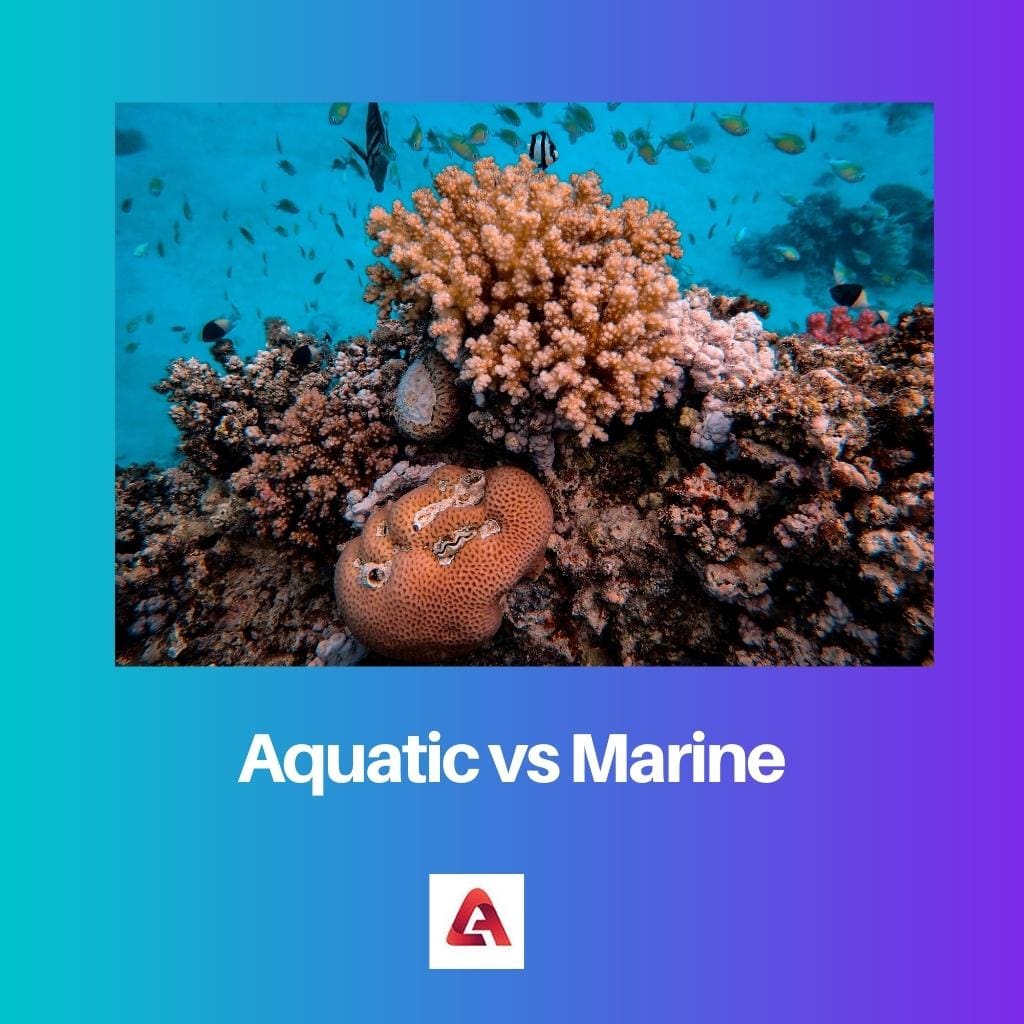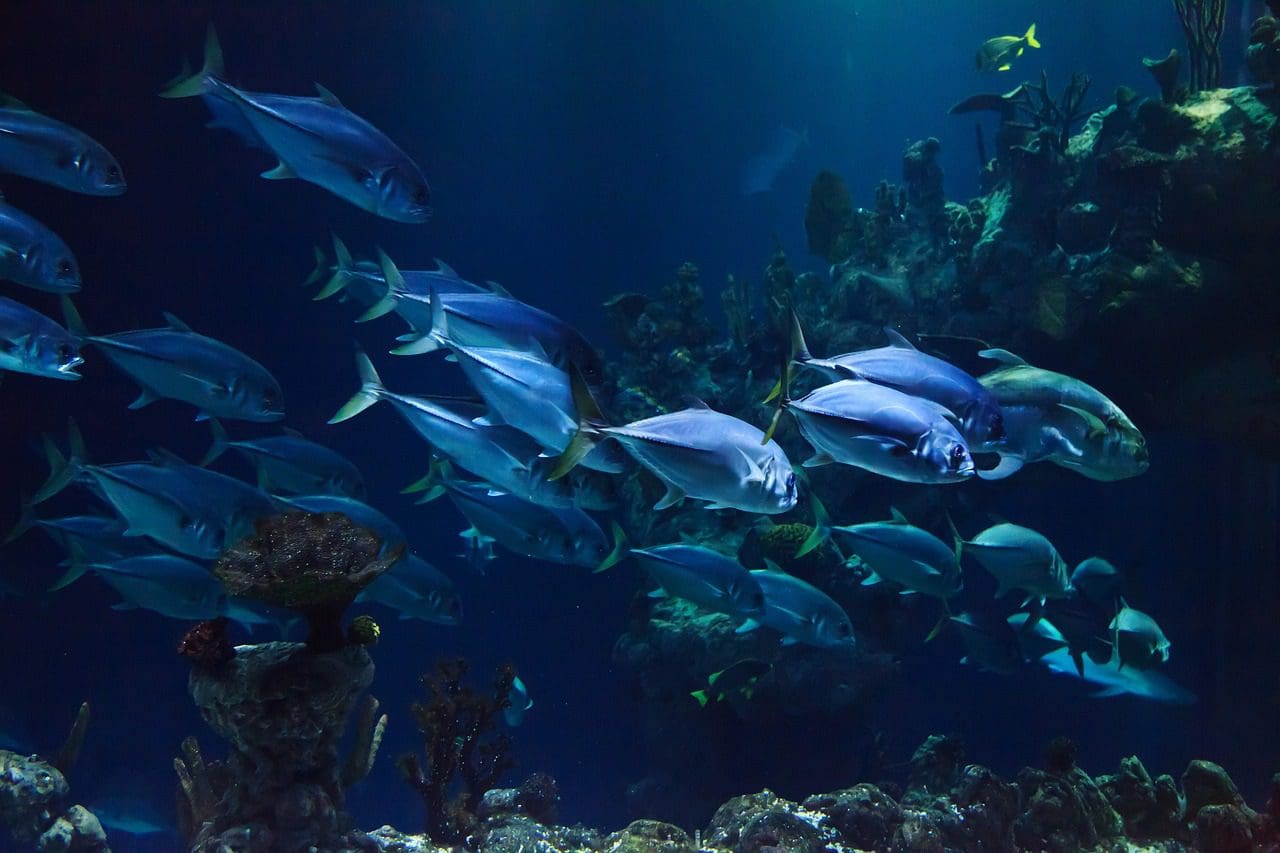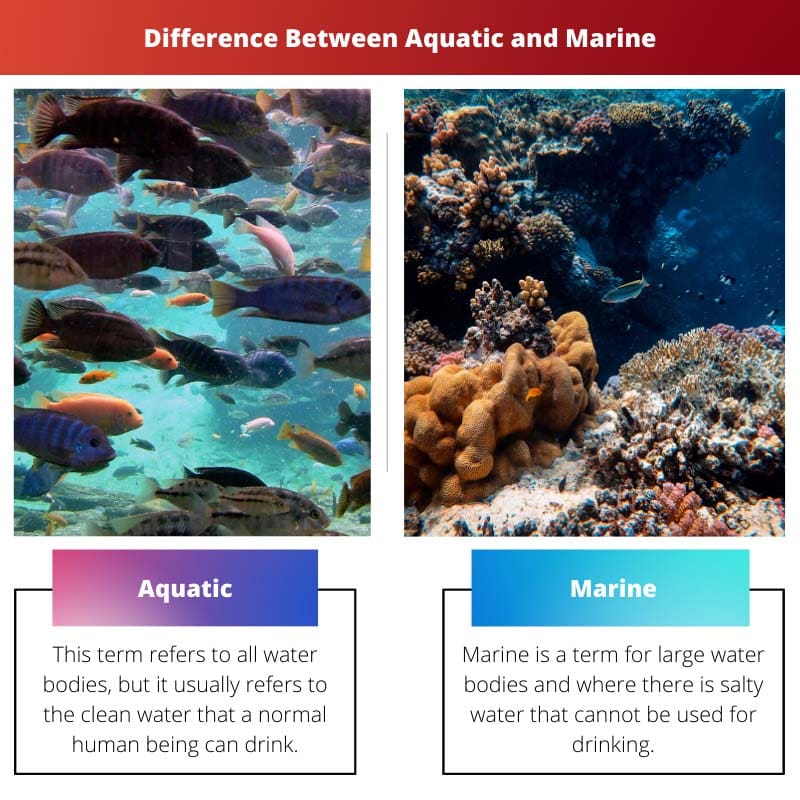Water is very important for humans as well as animals. But due to pollution and mishandling of sewage, water contamination is increasing day by day, leading death of aquatic animals, due to which the ecosystem is getting destructed and destroyed.
Water bodies should be protected from harmful things that are dumped into them. Because if it is not stopped, the aquatic animals will die, which can lead to harmful consequences.
When we say, Aquatic and Marine, people get confused because both terms are related to water. But both are different as Aquatic is a term referred to any of the water bodies, but Marine is only for big water bodies like saltwater, ocean, etc.
Key Takeaways
- Aquatic habitats refer to any area that contains water, regardless of the type of water, such as ponds, lakes, and rivers.
- Marine habitats refer to the ocean and any other saltwater bodies.
- Aquatic animals can live in fresh and saltwater environments, while marine animals can only survive in saltwater environments.
Aquatic vs Marine
Aquatic refers to anything related to or living in water and is a term used to describe all types of water environments, including freshwater and saltwater bodies. Marine refers to anything related to the sea or ocean and saltwater environments, covering about 71% of the Earth’s surface.

Aquatic bodies are those which live in freshwater. In simple words, we can refer to all types of water bodies using the term Aquatic, but it refers to the clean water a normal human can drink.
Lakes, rivers, and animals living there can be referred to using the word Aquatic or Aquatic animals.
Marine is a term for large water bodies where there is salty water that cannot be used for drinking. These water bodies cover large areas of the earth, and tons of animals are present there.
These are mostly preferred for catching fish and other types of water animals, for example, the red sea, black sea, etc.
Comparison Table
| Parameters of Comparison | Aquatic | Marine |
|---|---|---|
| Definition | This term refers to all water bodies, but it refers to the clean water that a normal human being can drink. | Marine is a term for large water bodies and where there is salty water that cannot be used for drinking. |
| Type of water | Water is pure in form and suitable for drinking purposes. | Water contains salt and is not suitable for drinking. |
| Profitable | Aquatic water bodies are less profitable because of less variety of water animals. | Marine water bodies are very profitable because of the variety of water animal species present in them. |
| Example | Rivers, lakes, and ponds. | Seas, oceans, etc. For example, the Arabian Sea, and Indian ocean etc. |
| Size | These water bodies are small in size and cover around 21646.88 sq per Km area. | These water bodies are very large in size and cover about 70 percent of the surface of our earth. |
What is Aquatic?
Aquatic refers to pure water bodies that are small and do not cover much area. And this term includes or describes all types of water bodies and water animals too.
This term also illustrates the freshness and purity of the water when it comes to its English meaning.
Some examples of Aquatic water bodies are rivers, lakes, ponds, etc. These water bodies are spread over a small area and are not much profitable for fish marketing and other water animal marketing because of less availability of water animals in them.
The Aquatic word can also be used for describing vehicles that are run in water as well as on roads and types of sports-related to water or played in the water. Mainly it illustrates things related to water or is done in water.

What is Marine?
Marine is also a term related to water bodies, but there is a difference because these water bodies are large in size and have vast cover areas as compared to aquatic water bodies. This term illustrates big oceans and seas, which cover almost seventy percent of the surface of the earth.
Marine water is salty in taste and is not good for drinking purposes or any other thing. But these types of water bodies are very profitable as a large number of water animals live inside them, from big whales to varieties of small fishes.
That is why it is more preferred when it comes to fish marketing.
Marine water covers almost half of the earth with many water animals like whales, sharks, and many more fishes. Submarines and big ships are used to travel through the ocean and seas because of their vastness.

Main Differences Between Aquatic and Marine
- Marine is a term related to water bodies, but there is a difference because these water bodies are large in size and have vast cover areas. In contrast, Aquatic refers to freshwater bodies that are small in size and does not cover much area.
- The marine term illustrates seas and oceans, which are large in volume. But the term Aquatic can be used to describe any water body, but they should be small in size.
- Marine water is mostly salty and is not fit for drinking and doing any activities with it. In contrast, the Aquatic water bodies contain freshwater, which can be used for household purposes as well as for drinking.
- Aquatic water bodies are less profitable because of the less variety of water animals. On the other hand, Marine water bodies are very profitable because of the variety of water animal species present in them.
- Marine water bodies are very large in size and cover about 70 percent of the earth’s surface. Whereas Aquatic water bodies do not cover much area.

- https://books.google.com/books?hl=en&lr=&id=kUCrAQAAQBAJ&oi=fnd&pg=PP1&dq=aquatic&ots=bqYtihXr2A&sig=bxI5JIkcx_RaXSU0m4Fvv6lDRkk
- https://books.google.com/books?hl=en&lr=&id=IHGIL7az7p0C&oi=fnd&pg=PA1&dq=marine&ots=qDYXG411Ny&sig=akStdoMaqFbreP8gy4rdMnm2Y74

I appreciate the thoroughness of the article in differentiating aquatic and marine ecosystems. It’s crucial to understand these concepts to address the threats posed by water contamination and other environmental hazards.
Yes, the article effectively underscores the urgency of addressing issues related to water pollution and its impact on aquatic and marine life.
The article’s coverage of the subject matter is highly informative and effectively conveys the importance of protecting both aquatic and marine ecosystems from pollution and other harmful activities.
I agree, the article provides valuable knowledge about the differences between aquatic and marine habitats and the challenges they face.
The in-depth descriptions of aquatic and marine environments provided in the article offer insightful perspectives on the need for conservation efforts to preserve these vital habitats.
Absolutely, the article serves as an important educational resource in advocating for the protection of water ecosystems.
The article’s comprehensive comparison between aquatic and marine environments contributes to a better understanding of the distinctions between these ecosystems and the critical need for conservation efforts.
Absolutely, the level of detail provided in the comparison table enhances comprehension of the ecological differences between aquatic and marine ecosystems.
I appreciate the depth of analysis in the article’s exploration of the ecological characteristics of aquatic and marine habitats.
The content’s clarity and detail regarding aquatic and marine habitats provide a solid foundation for understanding the ecological significance of these environments and the urgency to address environmental threats.
Agreed, the article effectively explains the environmental implications of water contamination and the necessity of protecting aquatic and marine ecosystems.
The article’s emphasis on distinguishing aquatic and marine habitats offers valuable insights into the ecological significance of these environments and the imperative to address environmental degradation.
Indeed, the article effectively communicates the importance of protecting water ecosystems and the varied species that inhabit them.
Thank you for clarifying the difference between aquatic and marine ecosystems. It’s important for us to understand this difference in order to protect and preserve these environments for future generations.
Absolutely, the information provided is very informative and highlights the importance of protecting our water ecosystems.
The way the article explains the difference between aquatic and marine habitats is very clear and educational. It’s essential for everyone to be aware of these distinctions to promote environmental conservation.
I couldn’t agree more. The article effectively conveys the significance of protecting water bodies and their inhabitants.
The comparison table provided is particularly helpful in understanding the disparities between aquatic and marine ecosystems.
The details provided about aquatic and marine environments in the article are enlightening and underscore the importance of conserving these crucial habitats.
The comprehensive explanation of what constitutes aquatic and marine environments is enlightening. This knowledge should inspire more people to take action to safeguard these ecosystems.
Absolutely, the level of detail in the article provides valuable insights into the significance of protecting aquatic and marine habitats.